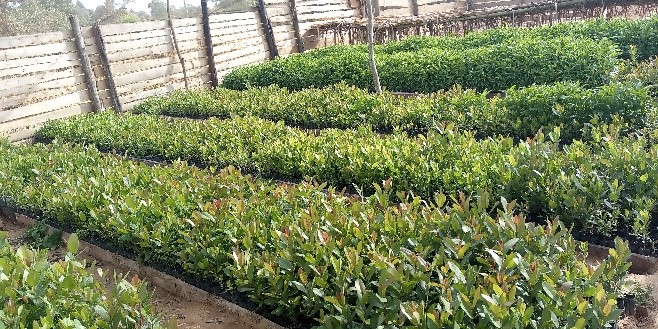Raising awareness in the local communities about Pangolin conservation
The direct involvement of local people who live with pangolins is important for pangolin conservation planning. Their involvement is beneficial because they have knowledge about pangolins based on their expertise and experiences. Tanzania Research and Conservation Organization (TRCO) conducted surveys involving local communities living adjacent to the Burigi-Chato National Park and Ibanda-Kyerwa Rumanyika-Karagwe National Park in western Tanzania to learn more about their knowledge, attitudes, and uses of pangolin derivatives. One of the main goals of the TRCO is to increase community understanding of research, ecology, and the conservation of biodiversity. TRCO anecdotal results found that many local communities are unaware of the pangolins’ feeding patterns and are eager to learn more about them. Local communities would like to participate in research and conservation of pangolins. TRCO wants to support local communities to provide training and awareness about pangolins. We are grateful for the help of the WWF-US EFN Russel E. Train Grant in enabling TRCO to conduct a pangolin survey and train some of the local people who are our pangolin representatives at the village level in western Tanzania.
Support our work and save Tanzania pangolins by reaching us at info@trco.or.tz
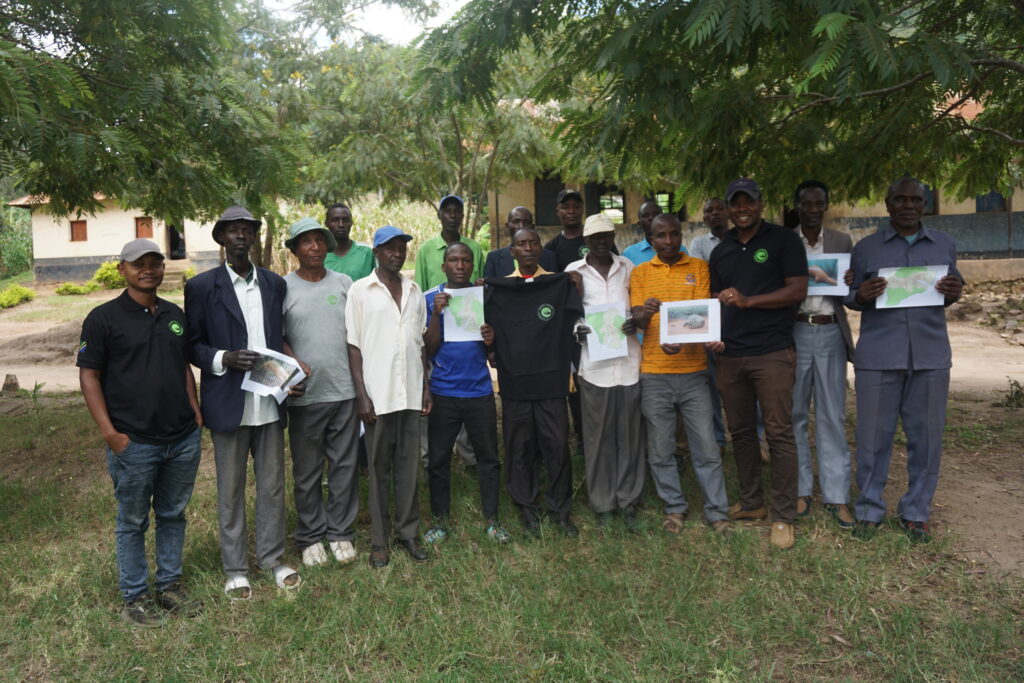
Training on Data Collection, Data Management & Data Analysis for Wildlife Managers
Michael Kimaro, the Managing Director of Tanzania Research and Conservation Organization (TRCO), who is also a PhD Candidate from the University of Groningen, actively contributed to the 5 days training data collection, management and analysis wildlife managers working in the Serengeti ecosystem. The training as conducted in September 2022 at the RISE department venue in the Sasakwa concession area in western Serengeti. The training involved participants from the Grumeti Trust Fund, Tanzania National Parks Authority (TANAPA), Tanzania Wildlife Management Authority (TAWA), District Game Officers, Ikona Wildlife Management Area, and an MSc wildlife researcher from the Sokoine University of Agriculture. This training focused on sharing advanced skills in study design, data collection, data management, and data analysis. Instructors provided skills to participants about statistics, QGIS, the Kobo Application for data collection, the development of a simple database for data management, and the introduction to R software for data analysis. This training was organized and funded by Grumeti Trust Fund.
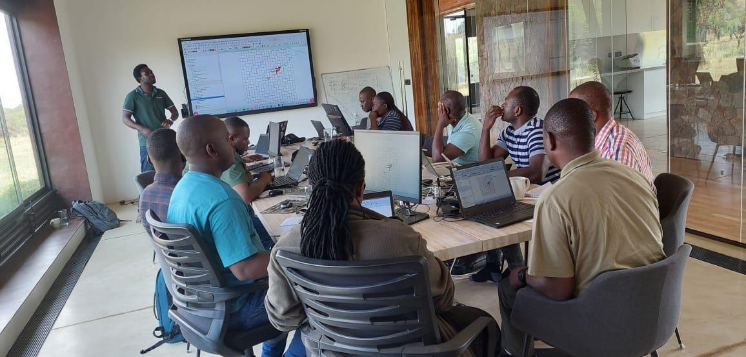
Training on Data Collection, Data Management & Data Analysis for Wildlife ecologist
Michael Kimaro, the Managing Director of Tanzania Research and Conservation Organization (TRCO), who is also a PhD Candidate from the University of Groningen, Netherlands conducted data analysis training at Lake Manyara National Park as a training supervisor for wildlife ecologists from Tanzania National Parks (TANAPA), Tanzania Wildlife Management Authority (TAWA) Ngorongoro Conservation Area Authority (NCAA), and District Game Officers (DGOs). It was a 5-day training that involved a total of 30 and 12 instructors from the University of Groningen and Leiden University from the Netherlands. This training was funded by multiple donors for the CoCoST program in the Serengeti-Mara ecosystem. The CoCoST stand for Corridors, Coexistence, Synergies, Transition, and Training. This CoCoST program is managed by Prof. Han Olff from the University of Groningen and aims to scale up the need of opening up and conserving wildlife corridors, management of wildlife and livestock interactions, management of human-wildlife conflict, land use planning and management, and transfer skills to local wildlife managers in the Serengeti-Mara ecosystem. For more information about the CoCoST program, you can visit:
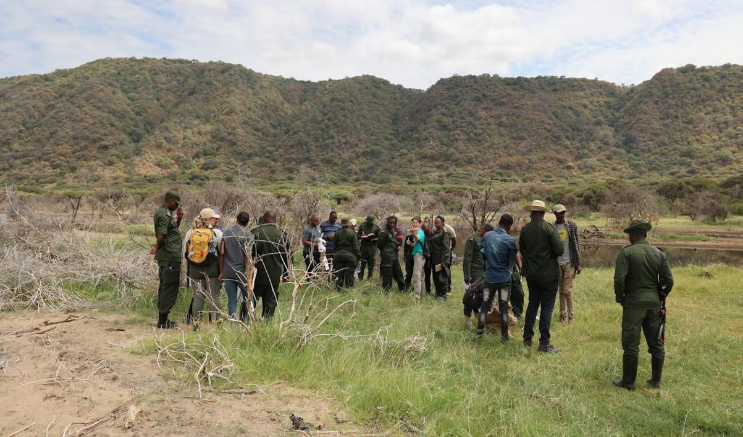
Contribute to National Workshop on reducing bushmeat consumption in Tanzania:
Hillary Thomas Mrosso, from TRCO invited to present his research findings about the illegal harvest of wildlife products assessed in the Ruaha landscape. The findings of this study are critical for understanding the link between the most poached species, most trade wildlife products and derivatives, and hunting methods used in relation to ethnic groups in the Ruaha landscape. TRCO is pleased to see it contributed to the national efforts of combating the illegal harvest of wildlife products. The workshop was organized by the University of York from the UK and the Sokoine University of Agriculture from Tanzania. The workshop was held at Lobo Wildlife Lodge in Serengeti National Park from December 13–15, 2022. It was a nationwide workshop to which stakeholders across the nation who involve in anti-poaching and anti-illegal wildlife trade were invited.
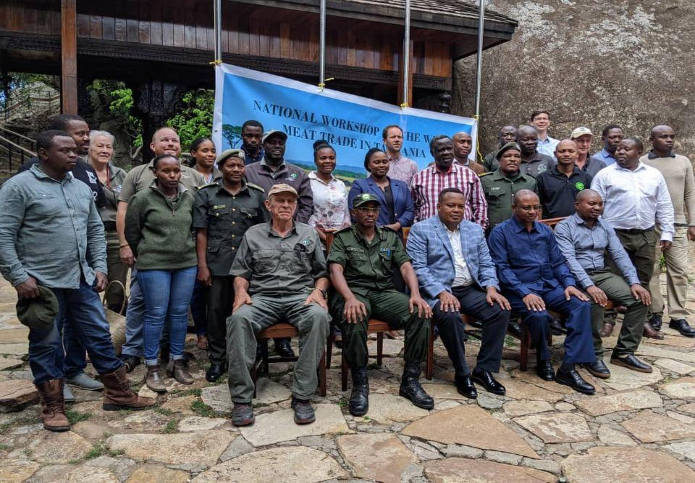
Capacity building on Innovative solution and approaches towards Natural Resources Resilience and Human-Wildlife Coexistence
Nyemo Chilagane, from Tanzania Research and Conservation Organization (TRCO) in collaboration with WIL Tanzania conducted in-depth capacity-building training on Innovative Solution towards Natural Resource Resilience and Human-Wildlife Coexistence within a changing climate in Tanzania. The aim of the training was to co-creating innovative solutions to explore and address water security issues that natural resources are facing with a growing population and climate change impact. The Training was conducted in Iringa and involved practical session whereby participants were supposed to identify, deign and implement innovative solution to address water security and human wildlife conflict to villages around Ruaha National Park. The training involved the participants from different discipline including early to mid-career professionals and researchers, entrepreneurs, social scientists, community leaders, local authorities’ staff from Rufiji Water Basin, Tanzania Meteorological Agency, National Irrigation Commission, Tanzania Forest Service, District Agricultural and Extension officers, Rural Water Supply Sanitation Authority and Tanzania National Parks. The training was organized by Waterlution and REGROW project.
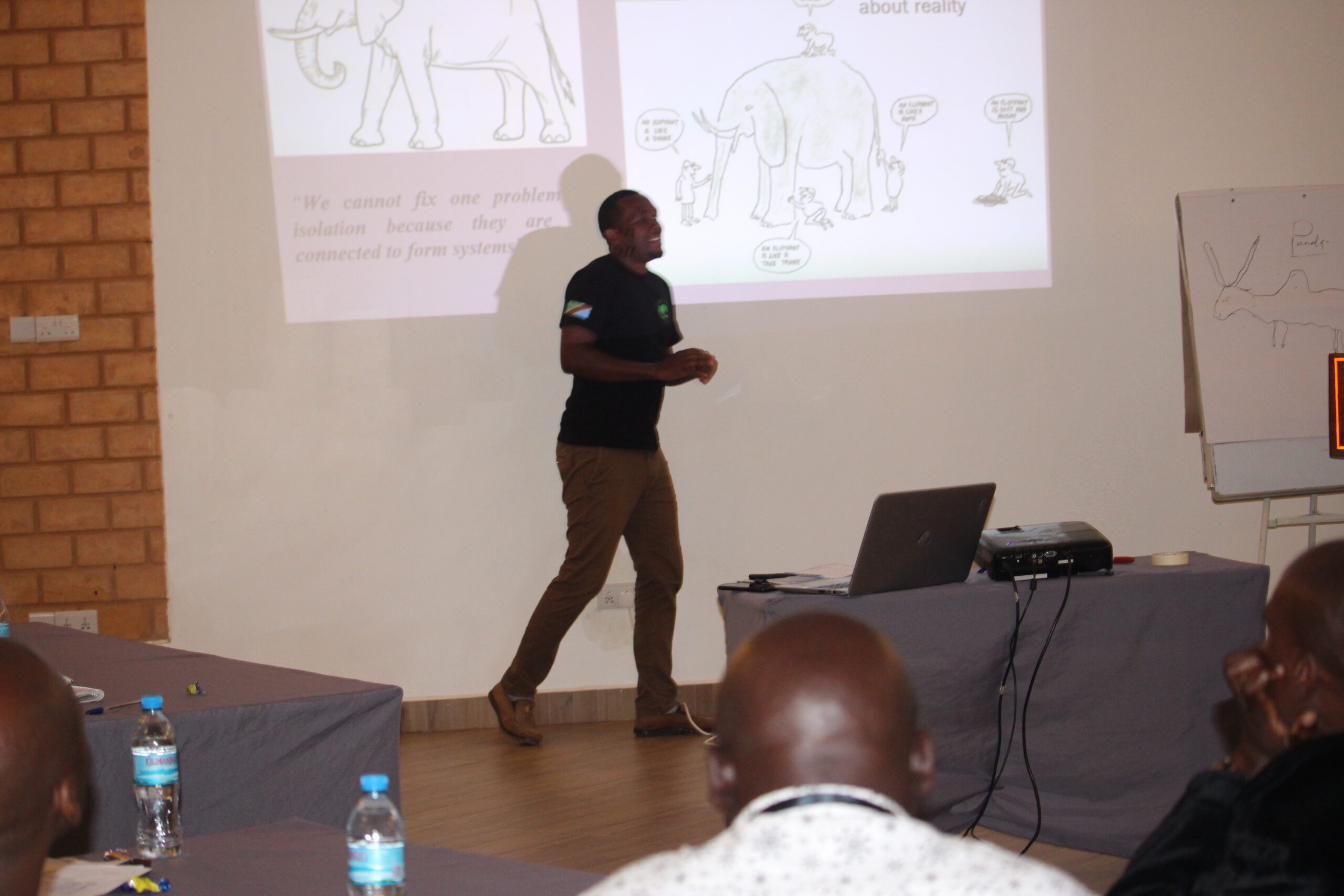
Protection and Restoration of freshwater sources
Tanzania Research and Conservation Organization contribute to the National Tree Planting Campaign through active participating in tree planting to protect and restore water sources in Mbarali river catchment which is an important water tower for Great Ruaha river. Tree planting exercise was collaborative and involved different stakeholders including local community, Water User Association, Primary and secondary school students, National Environmental Management Council, Sokoine University of Agriculture, Tanzania Forest Service, University of Dodoma, and Local Government Authority. A total of 30,000 water friendly tree were planted in degraded water sources and along Mbarali river. Tree planting campaign was organized by Sustainable Catchment Management through Enhanced Environmental Flow Assessment and Implementation for the Protection of the Western Indian Ocean from Land Based Sources and Activities in Tanzania (EFLOWS project) (https://www.sua.ac.tz/project/sustainable-catchment-management-though-enhanced-environmental-flow-assessment-and).
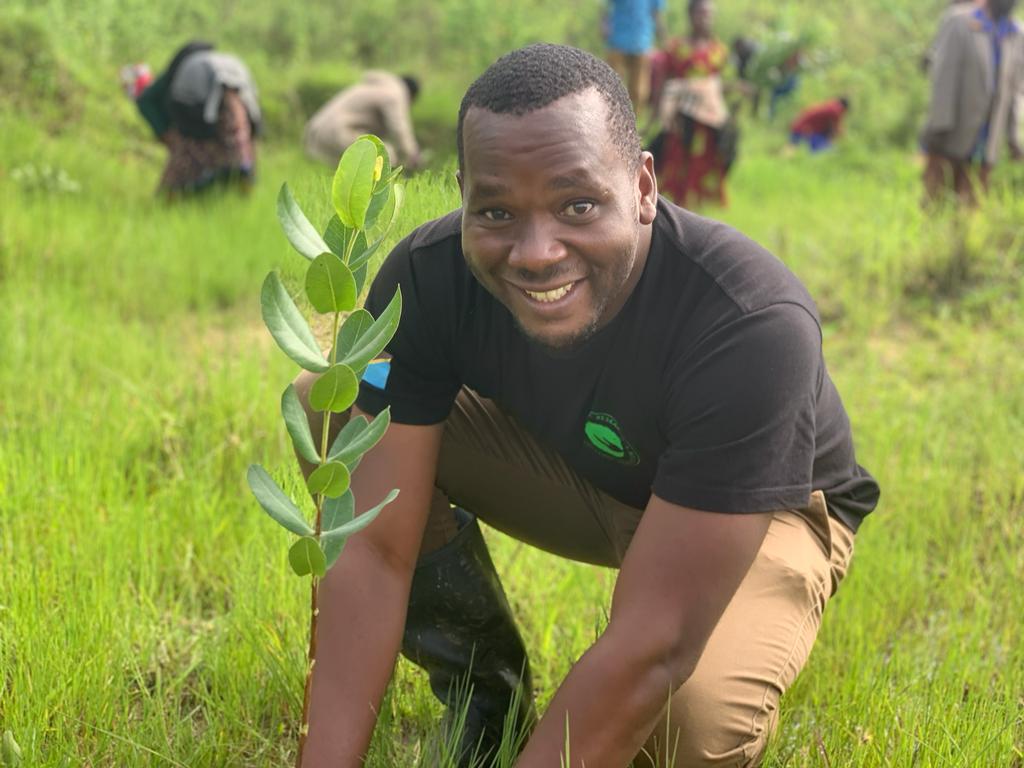
Environmental Flows Assessment and Implementation
The Environmental Flows Assessment (EFA) concept has been adopted in Tanzania with guidelines and procedures prepared at the national level, but are yet to be operationalized. Lack of awareness among practitioners and stakeholders at the basin and local levels has been reported to be one of the major setbacks for operationalization. This calls for capacity building and awareness creation of stakeholders from different water related sectors to fully embrace and operationalize EFA. In this regards, Researcher from Tanzania Research and Conservation Organization actively participated in Capacity Building Training on Environmental Flows Assessment in Western Indian Ocean (WIO) countries to enhance capacity of different stakeholders from WIO countries to effectively implement EFA. The raining organized by Sokoine University of Agriculture (SUA) and Western Indian Ocean Marine Science Association (WIOMSA).

Apart from participating in capacity building training, researchers from TRCO are also engaged in Environmental Flows Assessment of Mbarali river to evaluate water and environmental situations in the Mbarali river in order to assist the Government in planning the implementation of the best way to conserve the river and the environment for the economic benefits of the nation. The EFA of Mbarali river was implemented by multidisciplinary team including hydrologist, social scientist, hydraulics, riverine ecologist, hydrogeologist, botanist, aquatic biologist, environmentalist, GIS expert, and local community. The Environmental Flow Assessment of Mbarali river was organised by Sustainable Catchment Management through Enhanced Environmental Flow Assessment and Implementation for the Protection of the Western Indian Ocean from Land Based Sources and Activities in Tanzania (EFLOWS project) (https://www.nairobiconvention.org/clearinghouse/node/539)
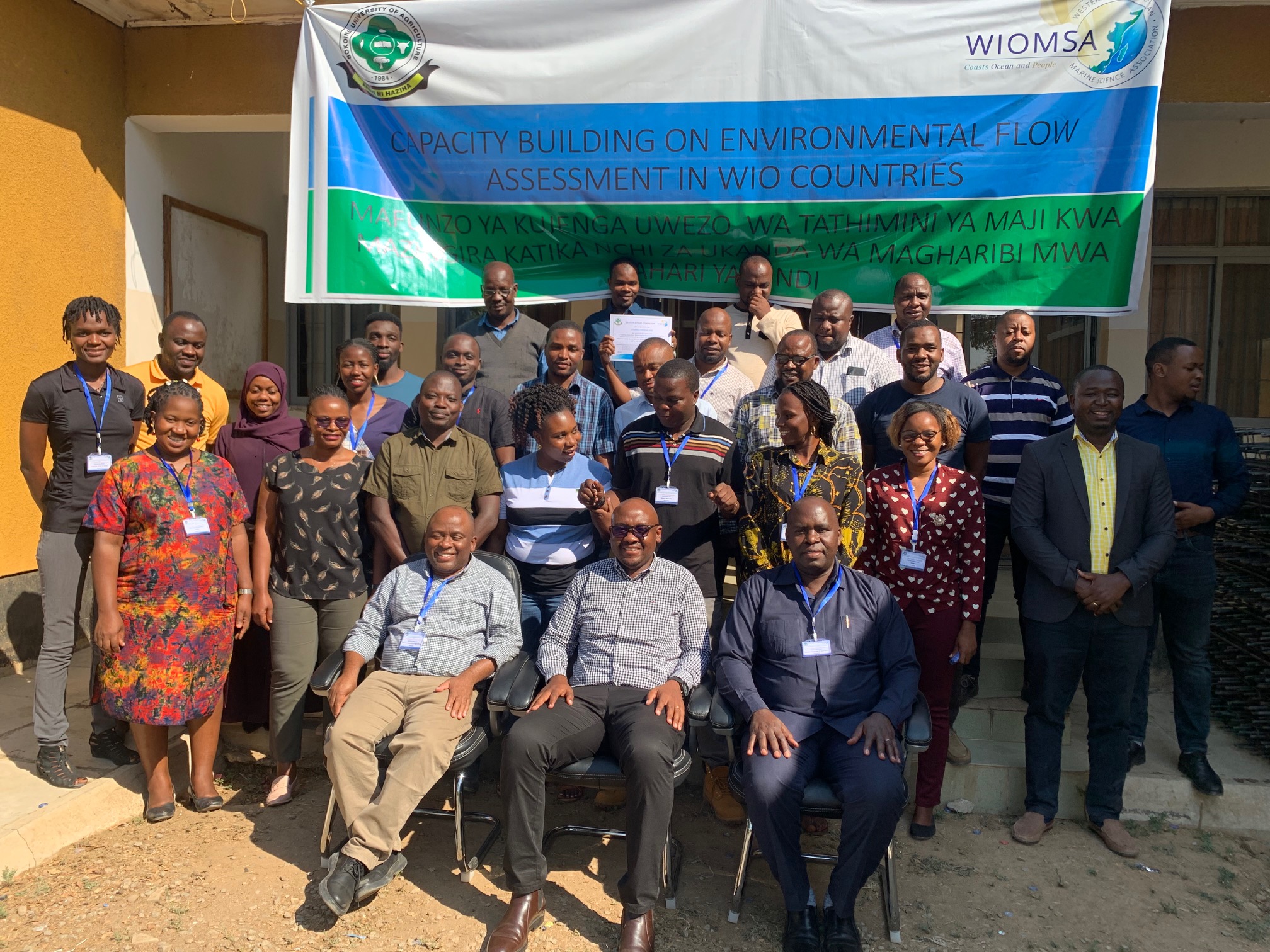
Water quality monitoring
Life on our planet is highly dependent on freshwater. Freshwater is a scarce resource and is a very small fraction of all water on the planet. While nearly 70 percent of the world is covered by water, only 2.5 percent of it is freshwater. Preserving the quality of freshwater is essential to prevent harm to human health and to the aquatic ecosystems, from which we get many other benefits such as drinking water, food and recreation. Water quality monitoring is essential for ensuring the health and safety of both humans and the environment. However, there is a substantial water quality data gap at the global level, and despite decades of efforts, this gap has proved difficult to fill. SDG indicator 6.3.2 alone does not necessarily fill this gap, but it does bring together information on water quality in a consistent and reliable manner, and it also provides insight into where and how data are collected. By recognizing this, water quality assessment and monitoring in freshwater resources is of paramount importance and must never be compromised. TRCO is in process of establishing database of water sources and has already conducted insitu water quality assessment in different water sources in Kilombero valley and Mbarali river subcatchment, however limited fund confines the spatial and temporal dimension for water quality monitoring. TRCO is still sourcing funds enhance the sustainability of water quality monitoring. (https://iet.or.tz/wp-content/uploads/2023/02/IET-Journal-September-2022-Vol-19-No-1.pdf)
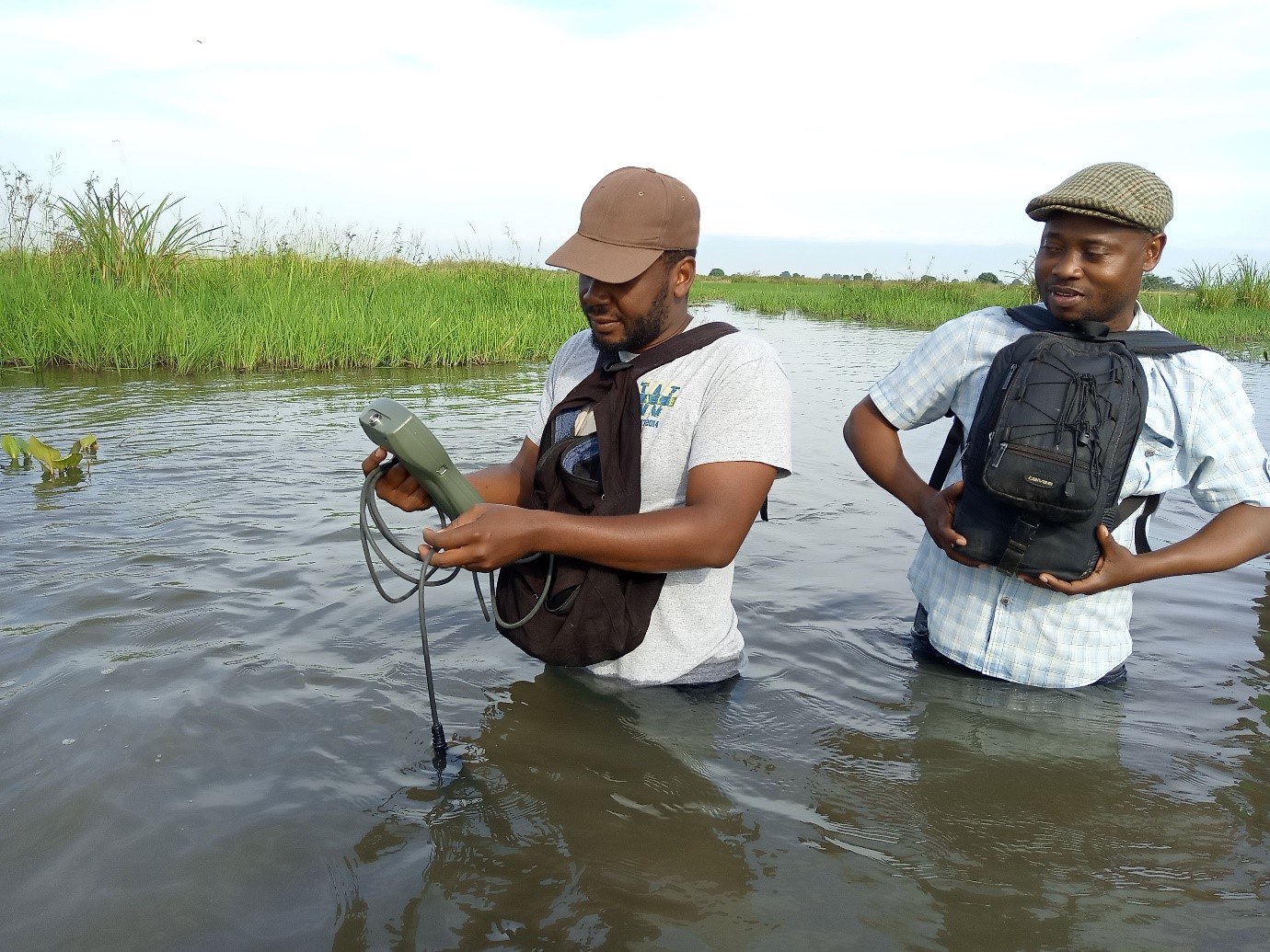
Hydro-Ecological Modeling
Modelling is very important when deemed to understand interaction of different ecological processes. Hydro-Ecological models are designed to simulate the complex relationships between hydrological variables, such as water availability, flow dynamics, and water quality, and ecological components, including vegetation, biodiversity, species distribution and habitat suitability. Also provide insight to the ecological responses to changes in hydrological condition and vice versa as well as impact of management interventions such as ater abstraction, land use change on habitat quality, biodiversity and ecosystem services. Hydrological and Ecological models are powerful tools for understanding, managing, and planning for sustainable use of Natural resources. Recognizing this, TRCO has developed number of distributed models which can be used to assess the influence of land management practices on the hydrology and ecology at the varying landscape. Moreover, these models can be used in decision making on the site-specific best management practice to be implemented to ensure sustainable utilization of biodiversity and Ecosystem services.
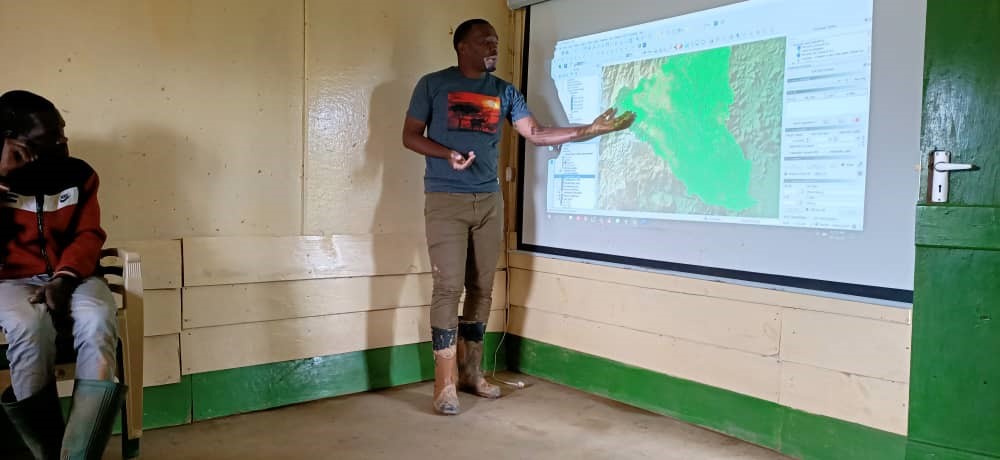
Biodiversity assessment
Assessing areas of high biodiversity plays a vital role in determining key areas for conservation and establishing conservation priorities. It plays a crucial role in understanding the importance and value of biodiversity and informing conservation and management efforts. Biodiversity assessment is crucial for guiding conservation actions, understanding ecosystem functioning, monitoring environmental changes, identifying economic opportunities, adapting to climate change, and promoting public awareness. By assessing and valuing biodiversity, we can work towards a more sustainable and resilient future for both ecosystems and human well-being. Researchers from TCRO in collaboration with other Researcher from Sokoine University of Agriculture and Mwl. Nyerere University conducted biodiversity assessment in the Southern Agricultural Growth Corridor of Tanzania (SAGCOT) covering Kilombero cluster.
The biodiversity assessment survey conducted to extensively understand the biological diversity of the cluster; Flora (trees, grasses, shrubs, climber, herbs) and Fauna (mammals, reptiles, amphibians, birds and insects) and their ecological disturbance. The survey conducted covering several ecosystems including Magombera Forest Reserve, Luhombero-Luegu Forest Reserve, Itongoa Kipuga Forest Reserve, Kilombero Valley Ramsar site, Kilombero Nature Reserve, Mselezi Forest Reserve, Nambiga Forest Reserve and Agroecosystems. The survey was conducted under the implementation of the Development Corridor Partnership Project (https://developmentcorridors.org/)
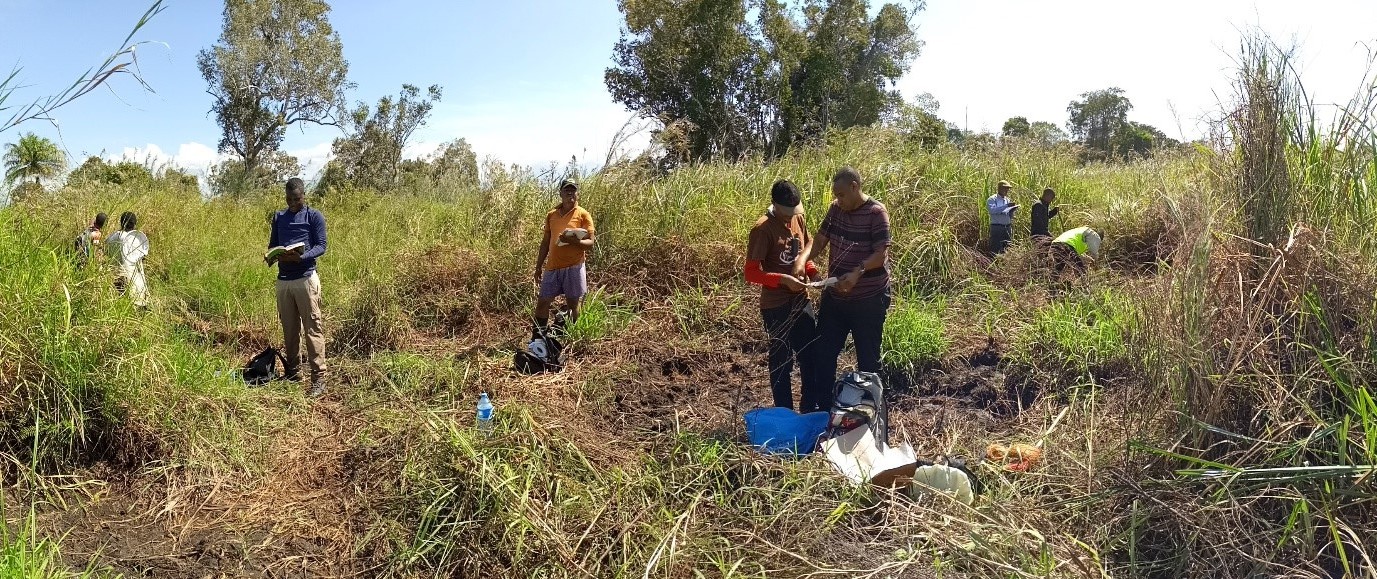
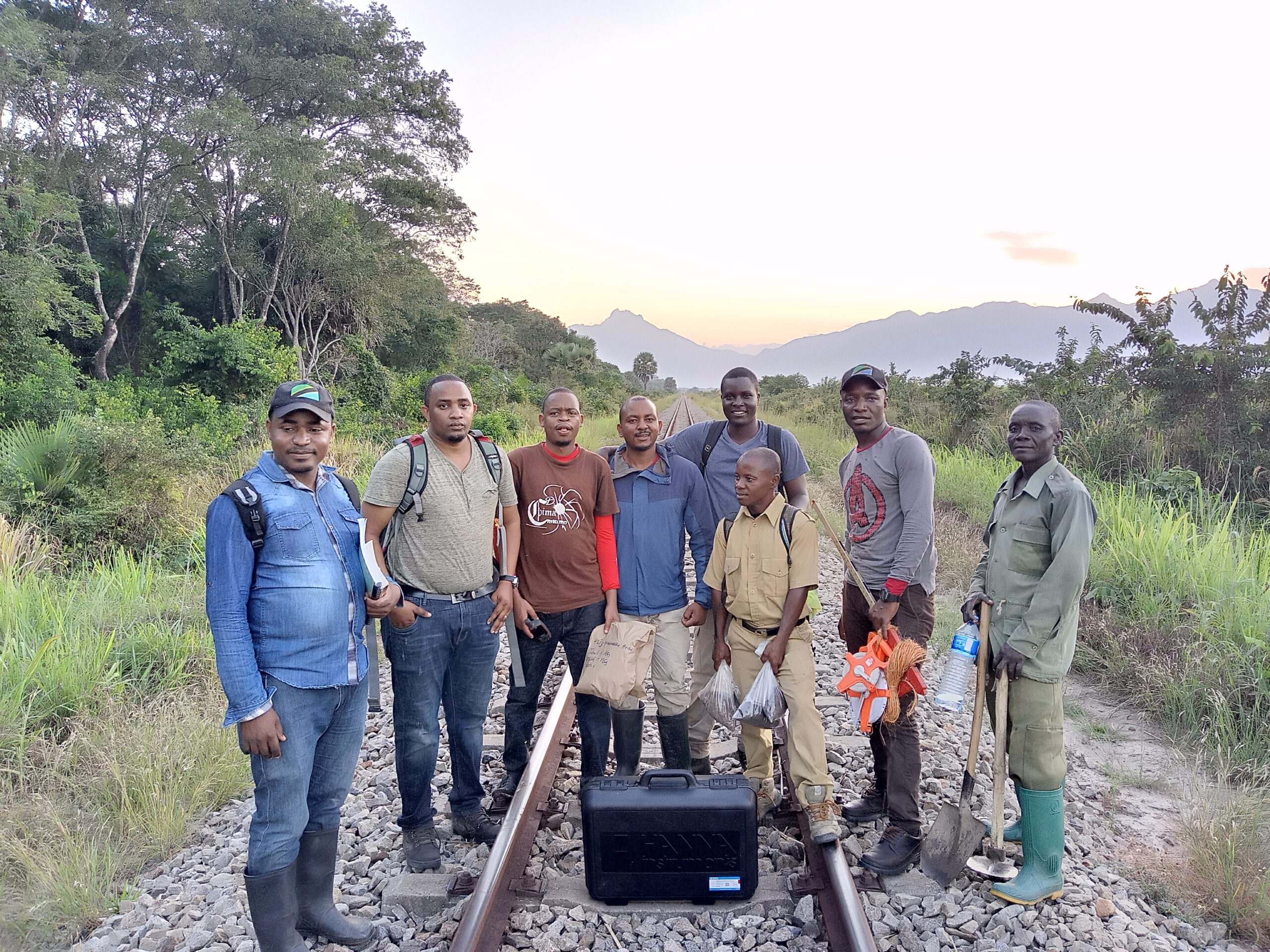
Ecosystems and Ecosystem Services Mapping and Valuation
Tanzania hosts a variety of ecosystems including aquatic (ie. freshwater wetlands, coastal and marine) and terrestrial (ie. forests, savannah, drylands or deserts, and mountains), The services and resources provided by these ecosystems directly and indirectly support the livelihoods of the human population and much of the country’s economy. Although Tanzania is characterized by rich, diverse and distinct terrestrial and aquatic ecosystems, modification of habitat due to the demands of demographic and socio-economic processes is exceeding natural carrying capacity of the ecosystems in the country causing disruption of the services they provide and leading to biodiversity loss and degradation in services. Sustainable management of ecosystems and their services depends much on their significance at local level and the way they contribute to wellbeing. Therefore, it is important to value all the relevant ecosystem and ecosystem services those with higher priority based on the extent they contribute to local socio-economic development. Having local prioritization across ecosystems therefore becomes a necessity before ecosystem valuation becomes of any significance contribution to management. Researchers from TCRO in collaboration with other Researcher from Sokoine University of Agriculture and Mwl. Nyerere University conducted social ecological survey to map and prioritize ecosystems and ecosystem services based on the extent they contribute to local socio-economic development. The survey was conducted in the Southern Agricultural Growth Corridor of Tanzania (SAGCOT) covering Kilombero cluster, under the implementation of the Development Corridor Partnership Project (https://developmentcorridors.org/)
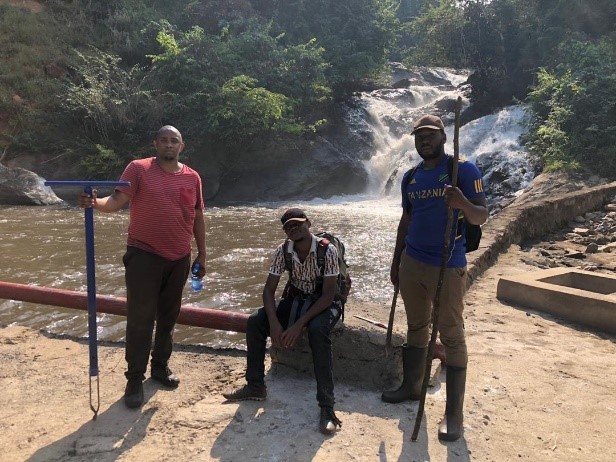
Mapping and Assessing Ecological Status of Water sources
Freshwater availability is fundamental resource for natural ecosystems, human livelihoods, and vital to sustainable development. The access to it is considered by United Nation as a universal human right. Regardless to its ecological and social economic importance, it’s availability constantly fluctuating and under extensive pressure to meet near future demand. Various stressors including, climate change, population growth and human-induced activities, such as deforestation and unsustainable agricultural practices are the leading causes for freshwater resources degradation. To ensure effective restoration and conservation practices, it is vital to identifying all water sources and assess different environmental challenges associated including anthropogenic activities within or nearby the source which will help to provides proper interventions for conservations and protection.

Recognizing that, Researcher from TRCO in collaboration with National Environmental Management Council and Water User Association (WUA), conducted a baseline ecological survey to map and assess ecological status of water sources in Mbarali river catchment; the headwater region of Great Ruaha River, Southern Highlands of Tanzania. Due to Limited funds, the survey covers only 22 % (45330 Ha) of the Mbarali river catchment. A total of 200 active water sources were identified whereby only 35% were found to be in good condition and the remaining 65% were degraded from anthropogenic activities.
TRCO is still sourcing fund to extend the ecological survey to map and assess ecological status of water sources covering the whole catchment and implementing Nature based Solutions to conserve water sources. However, under the implementation of EFLOWS project, we managed to established tree nursery with 45,000 water friendly seedlings which were planted in some of degraded water sources.
